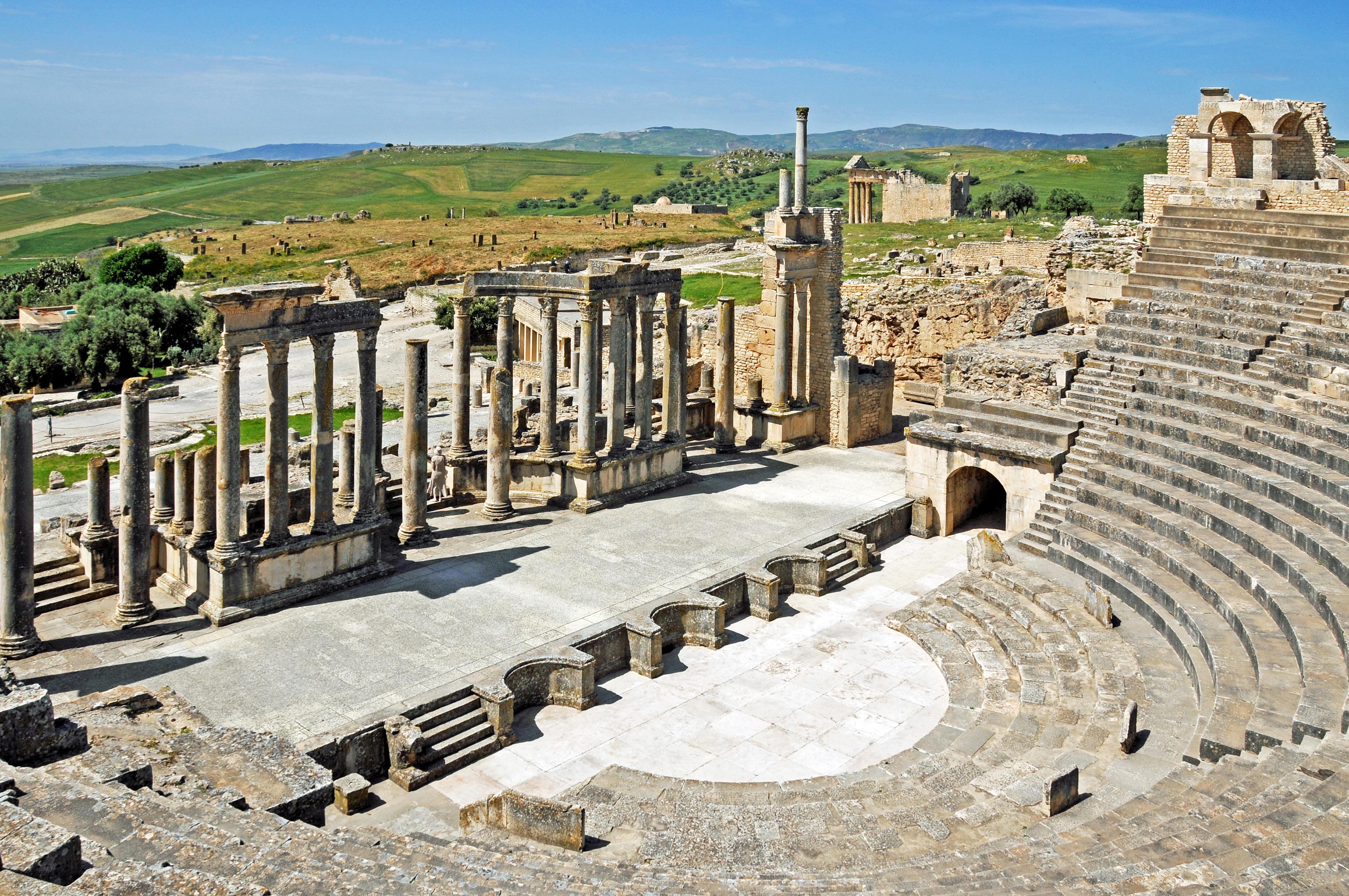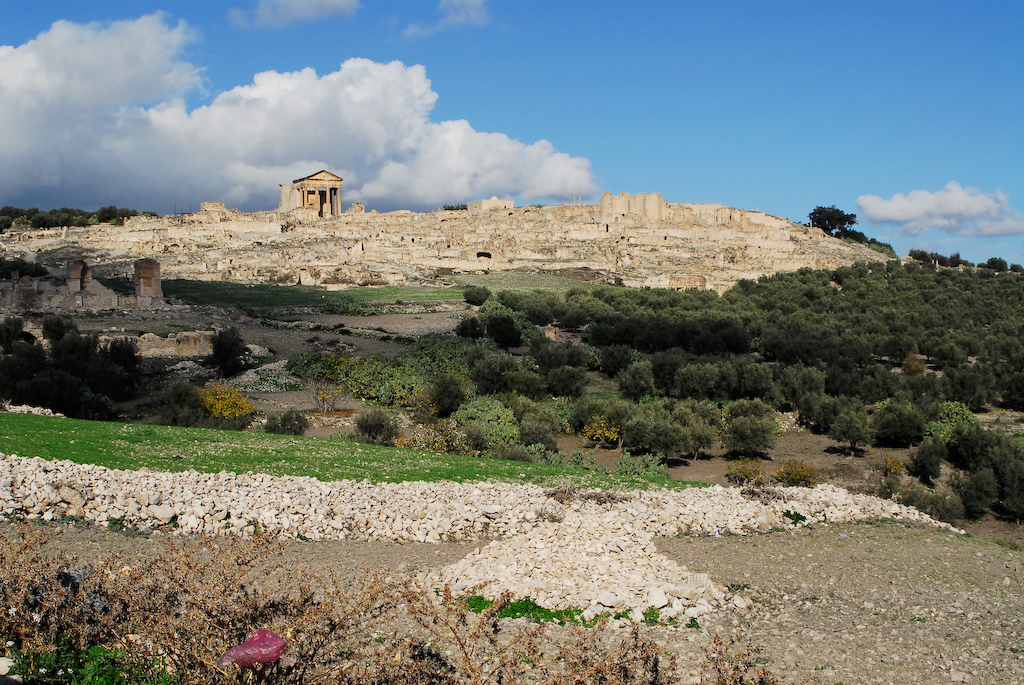



About
Dougga or Thugga or TBGG was a Berber, Punic and Roman settlement near present-day Téboursouk in northern Tunisia. The current archaeological site covers 65 hectares. UNESCO qualified Dougga as a World Heritage Site in 1997, believing that it represents "the best-preserved Roman small town in North Africa". Wikipedia
Spring (March–May) and Autumn (September–November):
Pleasant temperatures (18–26°C) and lush green surroundings.
Winter (December–February): Mild, but bring a jacket.
Summer (June–August): Very hot and exposed – early morning visits are best.
Nearest Major City: Tunis (approx. 2.5–3 hours by car).
By Car: Easiest and most flexible option – drive via Beja or Testour.
By Public Transport:
Take a louage (shared taxi) or bus to Teboursouk, then hire a local taxi to reach Dougga (about 8 km).
Tours: Guided day trips are available from Tunis or Hammamet.
Capitol (Temple of Jupiter):
Imposing Roman temple at the heart of Dougga, built in 166 CE.
Theatre of Dougga:
Spectacular amphitheater with views over olive groves; seats ~3,500.
Licinian Baths:
Roman public baths with well-preserved mosaics.
Punic Mausoleum of Ateban:
Unique 2nd-century BCE Numidian monument predating Roman rule.
Forum, Market, and Temples:
Explore a complete Roman city layout – streets, arches, latrines, and homes.
House of Trifolium & Cyclops Mosaics:
Fine Roman villa ruins with intricate floor mosaics.
Self-guided or guided walking tour of the archaeological site.
Photography – Excellent ruins with panoramic countryside views.
Birdwatching and nature walks around the site in spring.
Picnic on the surrounding hills (no food sold on-site, bring your own).
Dougga has no hotels on site – best to stay in:
Teboursouk: Small guesthouses or basic hotels.
Testour or El Kef: Nearby towns with local accommodations.
Tunis or Bizerte: For comfort and day-trip access.
No restaurants at the ruins – bring water and snacks.
In Teboursouk or Testour, try:
Local couscous, lamb stew, or brik.
Dar Zaghouan (if passing through Zaghouan) offers a lovely rural dining experience.
Dougga reflects Tunisia’s Roman, Numidian, and Punic heritage.
The region is peaceful and rural – expect welcoming locals but limited tourist infrastructure.
Arabic is spoken; French may help in larger towns.
Respectful, modest dress is recommended.